Personal Details: Martin, Daisy
Core Author | Stammautor
Daisy Martin, PhD, is the director of history performance assessment at the “Stanford Center for Assessment, Learning, and Equity”. The former director of history education at “http://teachinghistory.org”, she also cofounded the “Stanford History Education Group” (SHEG) and coauthored the award-winning book, “Reading Like a Historian: Teaching Literacy in Middle and High School Classrooms” (2nd edition, 2012), and website “Historical Thinking Matters”. Martin is a former high school teacher who holds a doctorate from Stanford University and now teaches teacher-candidates. Her research interests focus on the teaching and learning of historical thinking and include how open educational resources, teacher education, and performance assessment facilitate that focus.
Daisy Martin, Dr. phil., ist die Leiterin des Bereichs Geschichte am “Zentrum für Bewertung, Lernen und Gerechtigkeit” der Stanford Universität. Die frühere Leiterin für Geschichtsdidaktik bei “Teachinghistory.org” hat auch die “Standford History Education Group” (SHEG) mitgegründet. Sie ist Coautorin des preisgekrönten Buches “Reading Like a Historian: Teaching Literacy in Middleand High School Classrooms” (2. Aufl. 2012) und auch des Websites “Historical Thinking Matters”. Martin ist eine frühere Gymnasiallehrerin, die an der Stanford Universität promoviert wurde und jetzt in der Lehrerbildung tätig ist. Ihre Forschungsinteressen liegen v.a. im Bereich des Lehrens und Lernens des geschichtsbezogenen Denkens sowie der Entwicklung von OER, der Lehrerbildung und schließlich der Qualitätsentwicklung bei der Leistungsbeurteilung.
https://scale.stanford.edu-
Public History in Schools? Why and How?
Public History an Schulen? Wozu und in welcher Form?
Public History in Schools? Why and How?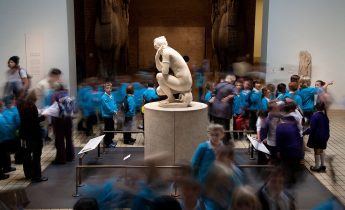
Teenagers encounter history outside schools in varied forms and related to a multitude of topics. But teaching with representations of the past that are not academic ideas, is largely absent from guidelines for history teaching.
-
Focusing on Democracy: A Teacher Educator’s View
Demokratie im Fokus: Die Sicht einer LehrerInnenausbildenden
Focusing on Democracy: A Teacher Educator’s View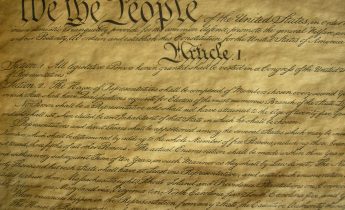
In the age of Trump we must refocus if we are teaching democratic principles in our classes. As teacher educators, we must make sure that students understand these ideas so they are prepared to teach them.
-
The Case of the Missing and Misunderstood Era
Der Fall der vergessenen und missverstandenen Ära
The Case of the Missing and Misunderstood Era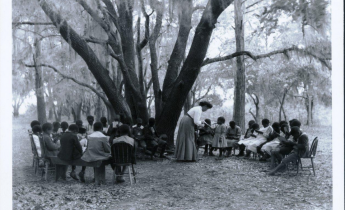
The American historical period known as the Reconstruction Era is very important but the public knowledge and consciousness of Reconstruction – the period immediately after the Civil War – is at best minimal.
-
What is a “worthy” test for History?
Was ist ein “angemessener” Geschichtstest?
What is a “worthy” test for History?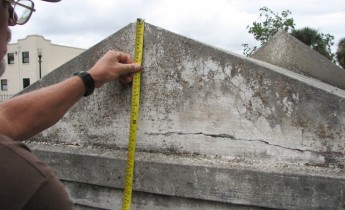
On October 24, 2015, The White House released (on Facebook!) a short speech by President Obama where he addressed growing concerns over the increase in standardized testing in the U.S. President Obama called for “smart, strategic tests” that help kids learn and don’t take the joy out of learning.
-
Politicizing AP U.S. History? (APUSH)
Politisierung des Unterrichts zur US-Geschichte?
Politicizing AP U.S. History? (APUSH)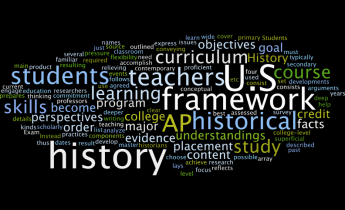
In February, Oklahoma state legislators considered a bill declaring an “emergency” in the U.S. history curriculum because of the revised Advanced Placement U.S. History course. An emergency! What was all this about?
-
Teaching Historical Thinking: Dilemmas not Dichotomies!
Historisches Denken unterrichten: Dilemmata, keine Gegensätze!
Teaching Historical Thinking: Dilemmas not Dichotomies!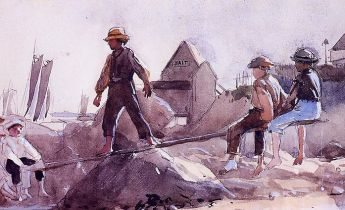
Breadth versus depth, content versus skills, inquiry versus memorization, textbooks versus primary sources; history educators in the U.S. hear dichotomies like these all the time. But framing these as dichotomies, ...